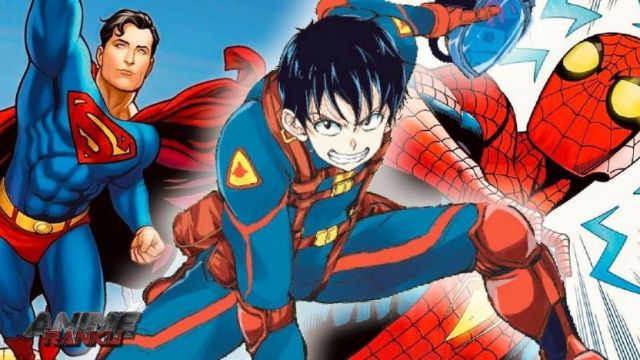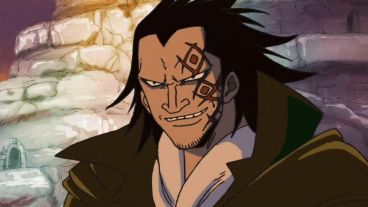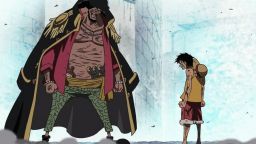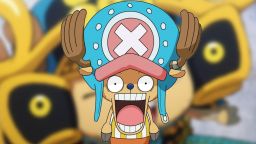Superheroes hold diverse meanings for different individuals. For Akira, they embody cherished memories and childhood fantasies. In contrast, Shizuka views superheroes as an unattainable ideal, a refuge sought by those discontent with their present lives.
In the initial episodes of "Zom 100," Akira's struggle to recollect his childhood aspirations becomes a pivotal theme. His newfound freedom to pursue long-held desires reveals a jarring truth—he had lost sight of his dreams along his life's journey. Akira's struggle to remember accentuates the potency of his realization that his childhood ambition was to become a superhero. This revelation profoundly shapes his character. However, perspectives diverge; Shizuka's response to Akira's dream prompts skepticism about his motivations for aspiring to be a hero, simultaneously inviting scrutiny of the concealed motives underlying other superheroes' actions.
In essence, the contrasting viewpoints explore the multifaceted nature of heroism and the intricate psychology that propels individuals toward these ideals.
Shizuka Calls Into Question The Motivations of Superheroes
Following Akira's debut act of heroism, Shizuka engages in a contemplative discussion. Her assessment delves deep, suggesting that Akira's yearning to be a hero stems from a desire for recognition, driven by a sense of societal insignificance and self-doubt. In her words, it's a sentiment rooted in the wish of men, often undervalued by society and plagued by low self-esteem, to transform into heroes.
Shizuka attributes this perspective to the insights of "psychologists," but it inadvertently reveals more about her own character. Her stance on superheroes serves as a guise for rationalizing her own self-centeredness and aversion to risk. Ironically, Shizuka's diagnosis of Akira's dream as a "psychological defense mechanism" could equally apply to her own impulse to rationalize Akira's aspirations. Regardless, the impact is profound, casting doubt on the very essence of heroism for Akira. His ideals, crafted from childhood exposure to superhero tales, encompass a vision of safeguarding the vulnerable, vanquishing evil, and upholding justice, all while adorned in a formidable costume—sans any anticipated reward. These principles have become part of Akira's core beliefs.
For Shizuka, such notions are not only frivolous but also unrealistic aspirations. To her, aspiring to be a superhero signifies a fragile mental state. At the series' outset, Shizuka's nihilistic worldview leads her to perceive values beyond individualism as illusory and insignificant. While values inherently lack physical form and can be likened to illusions, they remain essential to Akira. The post-apocalyptic realm of zombies has unveiled to him the importance of the emotions and values he once marginalized. He is resolute in translating every erstwhile dream into reality, regardless of their perceived impracticality, absurdity, or insignificance. For Akira, this juncture is pivotal, as he embraces these aspirations with newfound freedom, unburdened by the monotony of office life.
Zom 100's Unique Conception of What It Means to Be a Hero
Akira's quest for understanding the essence of heroism yields no direct response; instead, he finds his own answer. In an unexpected twist, the sudden onslaught of zombies compels Akira to instinctively leap into action, risking his own safety to shield others. In this unhesitating response, Akira demonstrates that the motives behind heroic deeds are secondary; the genuine valor lies within the unfiltered act itself.
This interpretation of heroism in "Zom 100" diverges fundamentally from Shizuka's interpretation. While her critique might hold psychological merit for some, it's far from a universal explanation for all acts of selflessness and heroism. Shizuka's skepticism about heroes aligns poorly with Akira's aspirations, as her description and Akira's intentions are inherently distinct.
Shizuka implies that Akira's pursuit of heroism must be driven by self-interest, reducing interactions to mere transactions—a self-centered outlook despite any underlying intentions. Akira, however, declares, "A hero doesn't need rewards." His readiness to take risks, act impulsively, and offer without anticipation of reciprocation aligns with traits commonly seen in the Marvel and DC universes. "Zom 100" might present a unique take on superheroes, often injecting humor into conventional tropes. Yet, the core principle of selfless giving without anticipation of reward resonates as strongly as in iconic Western superhero narratives like Superman and Spider-Man.
Interestingly, despite Shizuka's critique of Akira's heroism, her initial meeting with him in a convenience store unveiled a parallel heroic inclination. If she had strictly adhered to her rationalist outlook, there would have been no reason for her to save Akira from an incoming truck that fateful day. Her spontaneous act to save a stranger's life contradicts her theoretical dissection of heroism. This impulsive response foreshadows her eventual shift in perspective, revealing the genuine transformation of her own understanding of heroism.
Akira Rescues Shizuka In More Ways Than One
Since the series' inception, Shizuka's primary objective has been to avert the fate of becoming a zombie. This starkly contrasts with Akira and Kencho, who actively immerse themselves in life, acknowledging that zombification is a probable future. The central distinction lies in Akira's embrace of mortality and his desire to savor life's moments while he can, juxtaposed against Shizuka's intense fear of death, which, to some extent, paralyzes her.
In Episode 5, a profound shift occurs. Akira saves Shizuka's life, granting her a gift of immeasurable value, without expecting anything in return. This selfless act, which embodies the essence of heroism, exposes Shizuka to a new perspective. It vividly illustrates the true nature of being a hero. Akira's gesture unveils the depth of heroism beyond its surface, transforming Shizuka's perception of the concept.
Shizuka assumed that people always need a rational, self-serving reason for every action, and that's where her psychoanalysis of Akira failed. In reality, Akira shows that not everything a person does can be based purely on reason; there needs to be space for irrationality and pure creativity. The courage to take a risk without any guaranteed reward is definitely irrational, but it can also lead to the best things in life. This is a recurring theme in Zom 100, and the ability to take risks is something Shizuka initially lacks, which causes her to shut herself away and avoid other people. In the end, she proves that Akira changed her mind when she finally agrees to exchange contact info with him, despite it not necessarily being "safe" to do so.
Death is quite literally always chasing Kencho, Akira, and Shizuka in the form of zombies, and this has the effect of forcing each character's beliefs and ideals to move from the position of being purely conceptual to something which they are forced to act out and even become. When Shizuka's beliefs are challenged by Akira at first, she is able to push back and deny the ideals he embodies because she has the luxury of doing so. However, after being rescued by the self-proclaimed superhero, Shizuka has no choice but to face the fact that her own ideas failed in practice, and Akira inadvertently becomes the hero who saved Shizuka from herself.









